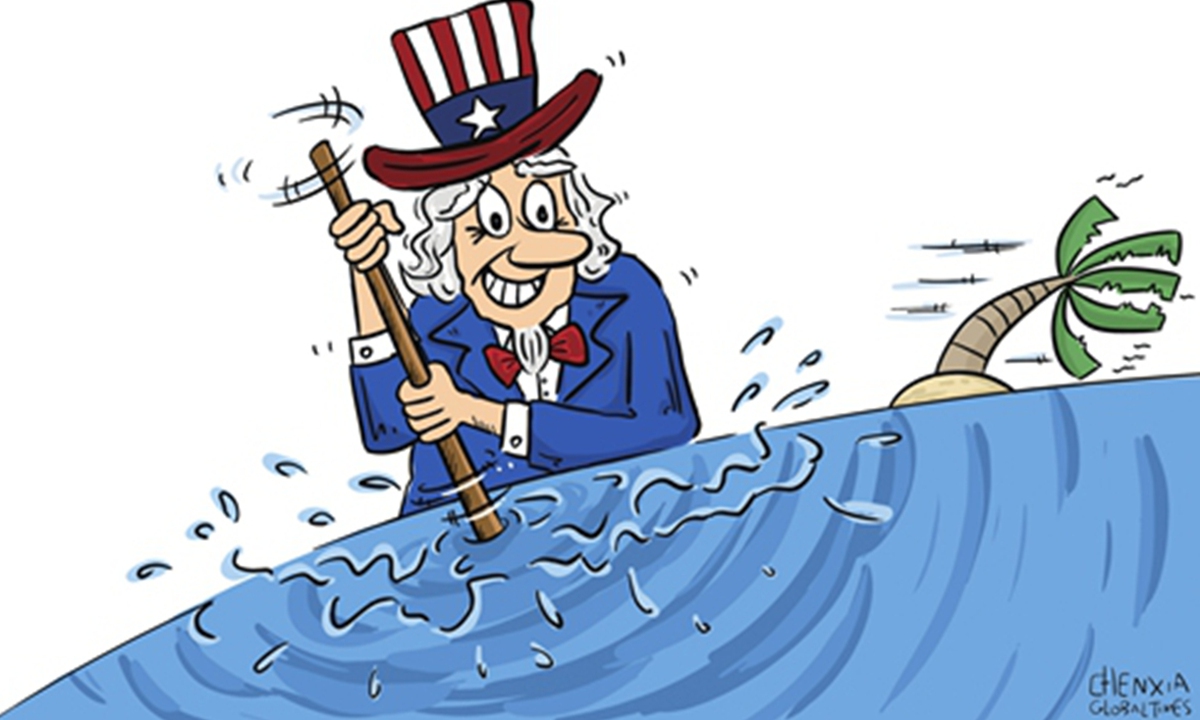By Wang Wenwen (Global Times, 30 August 2020) – Chinese People’s Liberation Army (PLA) drills in the South China Sea are ongoing amid US military’s intensified provocations against China.
Media reported that Vietnam Foreign Ministry spokeswoman Le Thi Thu Hang on Wednesday accused China of violating its sovereignty by conducting military drills in a part of the South China Sea which Vietnam claims as its own.
On the same day, Philippine Foreign Secretary Teodoro Locsin said Manila will invoke its defence agreement with the US if China attacks its naval vessels in the South China Sea. He also said that a US presence in the region “benefits” Philippine interests.
Vietnam’s stance is not surprising. In early August, Vietnamese media reported that Vietnam’s Foreign Ministry protested against China’s drills in the disputed Nansha Islands. On the one hand, this is Vietnam’s routine practice; on the other, such statements aim to address public concerns within the country.
Vietnam did so with an eye on the US. This year marks the 25th anniversary of the establishment of diplomatic ties between Vietnam and the US. In July, the two signed an agreement to strengthen Vietnam’s fisheries management and law enforcement capabilities, which is actually the US instigation of Vietnam to challenge China’s sovereignty by illegally fishing in the waters.
“Of course, the US hopes Vietnam could adopt a tough attitude toward China so that it would be easier for the US to leverage regional countries to stir trouble in the South China Sea,” said Cheng Hanping, a senior research fellow and professor at the Collaborative Innovation Center of South China Sea Studies at Nanjing University.
Cheng also refuted Locsin’s statement, believing it was meant to cater to anti-China forces in the country. More importantly, it is a pseudo-proposition, as China, a peace-loving country, won’t attack Philippine naval vessels.
It is also worth noting that the Philippine president’s stance is in stark contrast to that of his foreign secretary. In his State of the Nation Address on July 27, President Rodrigo Duterte stated that he has nothing against America or China, and will continue to pursue an independent foreign policy. In early August, he issued a directive banning his country’s navy from joining maritime exercises with the US and others in the South China Sea to reduce tensions in the disputed waters.
The current drills by China’s PLA are being conducted against the backdrop of frequent US provocations. The US plays the “edge ball” by keeping its naval presence in the region, and sending close-in reconnaissance aircraft, and China’s drills are aimed at safeguarding its sovereignty and dignity.
While some in Vietnam and the Philippines have shown toughness, it is the US that has taken the initiative to meddle in the waters and destabilize the region.
As an external player, the US has been overly active in the South China Sea, which only raises tensions in the region, and serves US hegemony. Only China and ASEAN countries are the stakeholders of security in the region. Leaning toward the US leads to many uncertainties for regional countries, and they should avoid acting as US pawns to create shockwaves in the waters.


